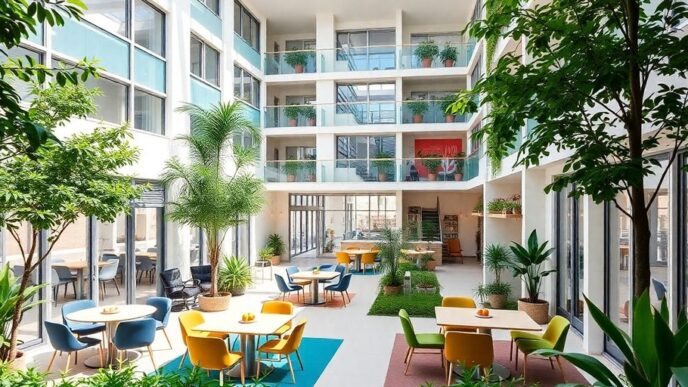Portugal has decided to reintroduce tax breaks for foreign workers, aiming to attract digital nomads and skilled professionals to stimulate its economy. This move marks a significant shift in the country’s approach to foreign labor, following the previous government’s decision to scrap these benefits due to concerns over housing affordability and fiscal fairness.
Key Takeaways
- Portugal is reintroducing tax breaks for foreign workers to attract digital nomads and skilled professionals.
- The new tax regime will offer a 20% flat rate on salaries and professional income but exclude dividends, capital gains, and pensions.
- The move aims to stimulate economic growth and address the country’s aging population crisis.
- The government is balancing the need for skilled workers with the housing affordability crisis.
Background
Portugal has had a fluctuating relationship with foreign workers, especially digital nomads. The country initially introduced the Non-Habitual Resident (NHR) tax regime in 2009 to attract skilled professionals. However, the previous government scrapped these tax breaks in October last year, citing them as a "fiscal injustice" and a contributor to the housing crisis.
The New Tax Regime
The new tax regime will reintroduce a 20% flat tax rate on salaries and professional income for foreign workers. However, it will exclude other forms of income such as dividends, capital gains, and pensions. This adjustment aims to attract young, skilled professionals while discouraging older immigrants who primarily contribute through real estate investments.
Economic and Social Implications
The reintroduction of tax breaks is part of a broader legislative package aimed at stimulating Portugal’s economy. The government hopes to attract highly skilled workers who can contribute to innovation, entrepreneurship, and education. This move is also seen as a way to counteract the outflow of young Portuguese professionals seeking opportunities abroad.
However, the government faces the challenge of balancing economic growth with housing affordability. The influx of high-income foreign workers has been blamed for rising housing prices, making it difficult for local residents to afford homes.
Political Landscape
The current center-right government, led by Prime Minister Joaquim Miranda Sarmento, holds only 80 of 230 seats in parliament. This means they will need support from either the Socialist Party or the right-wing Chega party to pass the new legislation. The government is also scrapping the "manifestation of interest" immigration clause, which allowed non-EU citizens to apply for residency without a guaranteed job.
Conclusion
Portugal’s decision to reintroduce tax breaks for foreign workers is a strategic move to attract digital nomads and skilled professionals. While the government aims to stimulate economic growth and address demographic challenges, it must also navigate the complexities of housing affordability and political support to ensure the success of this initiative.
Sources
- Portugal brings back tax breaks for foreigners in bid to woo digital nomads | Fortune Europe, Fortune.
- Portuguese Gov’t Moves to Bring Back Watered-Down NHR Tax Regime – IMI – Investment Migration Insider, IMI Daily.
- Desperate for growth, Portugal backtracks on hostility to digital nomads as its tax breaks for skilled foreigners return, Yahoo Finance Canada.
- Portugal just became a bit less friendly to digital nomads as country plans to end foreign tax breaks, Yahoo Finance.
- Portugal becomes less friendly to digital nomads as it plans to scrap tax breaks | Fortune Europe, Fortune.












